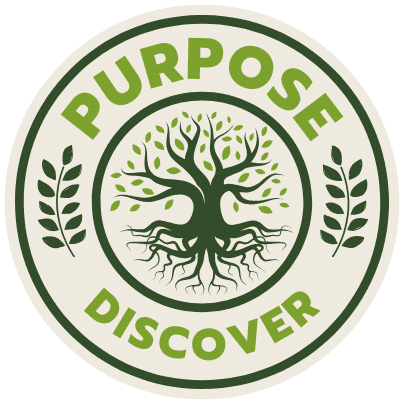Sometimes you just know. That sudden gut feeling, the quiet nudge inside your chest that can’t be pinned down by logic or facts. It’s way more than an annoying itch or a fleeting thought. Those instinctual whispers from within often point to something profoundly real—something raw and unfiltered beyond our armor of reason. Trusting personal instincts isn’t about ignoring evidence or tossing aside rational thought; it’s about tuning in to a deeper current running beneath the surface of everyday noise.
Think about the last time you hesitated before making a choice, even though everything looked perfect on paper. Or when a person gave you a weird vibe but your brain scrambled to rationalize, “No, you’re overreacting.” We all wrestle with this. The mind loves neat conclusions, yet our instincts often hold more nuanced truths that don’t immediately fit into tidy categories.
Why is instinct so potent? Because it’s born from years of unconscious learning, past experiences, and emotional impressions—the kind of wisdom we’ve absorbed without sitting down and analyzing every detail. It’s not just a mystical sensation but a biological phenomenon. Your brain doesn’t operate in isolation; it constantly processes sensory info and cues you can’t always articulate. Sometimes, it bypasses your conscious thinking altogether and fires off a signal of warning, excitement, or caution.
The Quiet Power of a Gut Feeling
Ever notice how you can’t always explain why you feel a certain way but those feelings shape your decisions more than you’d expect? That’s the gut feeling flexing its muscles. It’s like an internal radar honed by years of navigating life’s messy terrain. Our ancestors relied heavily on this sort of immediate sense to survive. Today, it still serves us well even in the complex web of modern life, though we tend to second-guess it in favor of data or social proof.
Here’s what’s wild: trusting that gut often leads to better outcomes than overanalyzing endlessly. It’s not about abandoning logic but about balancing intellect and emotion. You can dig into every spreadsheet and consult with every expert, but sometimes your instinct is tracking signals you haven’t consciously picked up yet. Like the feeling that someone’s hiding something or that a business deal feels off despite surface indicators being green. Your internal compass just isn’t “off” because it’s wired to spot subtle discrepancies quickly.
That’s why suppressing these feelings can backfire. People who ignore their instincts often end up stuck in situations they sense aren’t right. It’s memorable how many stories crop up about careers, relationships, or investments where a niggling sense of dread went unheeded until it exploded into crisis.
When Instincts Reveal Hidden Truths about Others
People are inscrutable. That’s often the joke—”You never really know what someone’s thinking.” But personal instincts breach that barrier in weirdly accurate ways. When you get a feeling about someone’s authenticity, motives, or feelings, it’s often an aggregate of micro-expressions, tone, body language, and subtle cues your brain decodes instantly without your conscious input.
Have you ever instantly liked or disliked someone, and later found your initial sense was freaking correct? That’s your instinct pulling back the veil on their true nature faster than any conversation or profile ever could. Sometimes it feels almost like psychic revelation but it’s simply your brain recognizing patterns it has seen before. It spots inconsistencies between words and actions and flags alarms.
Here’s a twist: trusting your personal instincts here doesn’t mean jumping to harsh judgments or stereotypes. It means acknowledging your deeper self’s ability to read beneath surfaces. People often mask intentions, but our internal radar pierces through masks. That doesn’t offer absolute truth, but an edge in understanding human behavior—which is notoriously messy and contradictory.
Why Society Often Undermines Instincts
We live in an age that glorifies data, evidence, and hard facts. Don’t get me wrong, I’m a fan of evidence-based thinking, just not when it eclipses the wisdom of intuition. Schools, workplaces, and social norms often undervalue personal instincts as irrational or unscientific. We’re told: “Check your feelings at the door,” or, “Trust the numbers.” But the truth is, pure logic alone can seldom capture the complexity of human experience.
This cultural bias against instinct discourages people from being honest with themselves. We default to what’s measurable—metrics, performance reviews, surveys—yet many crucial insights evade quantification. How do you measure the feeling that a project will flop or that a person is genuine?
The challenge comes from integrating intuition with reason, not choosing one over the other. Striking this balance can result in clearer judgments and wiser decisions. When you welcome your instincts instead of silencing them, you honor your whole self—not just the analytical part.
How to Listen When Your Instincts Speak
If you’re reading this thinking, “Sure, I’ve had feelings but how do I know which ones count?” not every instinct deserves the throne. Some feelings get tangled with fears, biases, or past trauma. Learning to separate the genuine signal from emotional noise is key.
Here’s a quick, admittedly imperfect, method:
🔍 Pause and acknowledge that you’re feeling something without immediately reacting.
🧘♀️ Breathe and reflect: Where is this feeling coming from? Is it based on real cues or just anxiety?
🎯 Test it: Seek evidence that confirms or challenges your instinct.
👂 Ask others who know you well for perspective, but use their input as one piece of the puzzle.
The more you practice this kind of internal checking-in, the better you become at recognizing authentic instincts that reveal deep truths. Like tuning into a secret frequency that’s always been there.
The Strange Joy in Following Instincts
Following your instincts can sometimes feel risky—jumping off a perfectly safe cliff into unknown waters. Yet so often it leads to breakthroughs, radical clarity, and moments of undeniable rightness. There’s an almost sacred joy in feeling aligned with your deeper self. It’s like a conversation with your own soul.
One time, I ignored a strong instinct about a professional opportunity that looked shiny but felt hollow. Six months later, it turned toxic and draining. That lesson stung but also cemented my belief in that inner voice. It’s a bit like a secret superpower you rarely brag about but lean on when everything else fails.
What’s more, trusting instincts often reveals truths about our core desires and values that logic can’t fully capture. Instincts operate in that vast shadow land of intuition and emotion where our deepest priorities swirl. That knowledge can shape who we become and what paths we walk.
If you want to dive deeper into aligning decisions with your authentic self, check out resources that explore life’s purpose through intuition and insight at where you can learn about finding your true calling.
When Instincts Lead You to Hard Truths About Yourself
Make no mistake: sometimes your instincts point to things you really don’t want to hear about yourself. They expose your fears, your blind spots, or the uncomfortable truth that you’re in denial. Trusting those instinctual nudges takes courage—because the truths they reveal can be messy and humbling.
But here lies the real gold: self-awareness. That’s the ultimate deep truth. The more you’re willing to engage with your instincts honestly, the more you open the door to personal growth. It feels like peeling back layers you’ve been hiding behind, exposing the core of who you are—flaws, brilliance, all of it.
If you avoid this process, you keep stumbling in repetitive patterns. The instinct is like a breadcrumb trail out of confusion, toward clarity. It nudges you toward confronting your fears, letting go of toxic habits, and stepping into a more authentic life.
For those craving clarity on their life’s purpose through honest self-reflection, exploring different perspectives can be eye-opening—like the ones shared at a thoughtful resource for purpose seekers.
Don’t Dismiss Your Instincts—They’re Messages From Your Whole Being
The brain might be the “control center,” but your instincts are the raw emotions, memories, and survival mechanisms screaming to be heard. Ignore them long enough and you risk becoming disconnected from your own truth. But when given space, those instincts shine a light on hidden realities—about situations, people, and yourself.
So next time you feel that inexplicable pull, don’t shove it aside with a shrug. Lean in, ask questions, hold it with curiosity. There’s a reason it surfaced. Behind that feeling is a thread waiting to be tugged, revealing a story far richer than what your rational mind can draft alone.
The truths that surface from trusting your personal instincts aren’t always comfortable but seldom misleading. They come wrapped in feelings, yes, but those feelings carry the wisdom of your whole life’s experience. Honoring them enriches your decisions, deepens your self-understanding, and, frankly, makes life a little more authentic and a lot less mundane.
There’s no universal roadmap for this process, but if your instinct points you toward exploring who you actually are and what matters most, take the hint. Sometimes the deepest truths come from within, whispered quietly by that voice you often ignore but can never truly silence. For a genuine guide to listening to your inner voice, visit this insightful site on life’s meaning and intuition. Your instinct might just be trying to tell you the one thing you’ve been missing all along.

